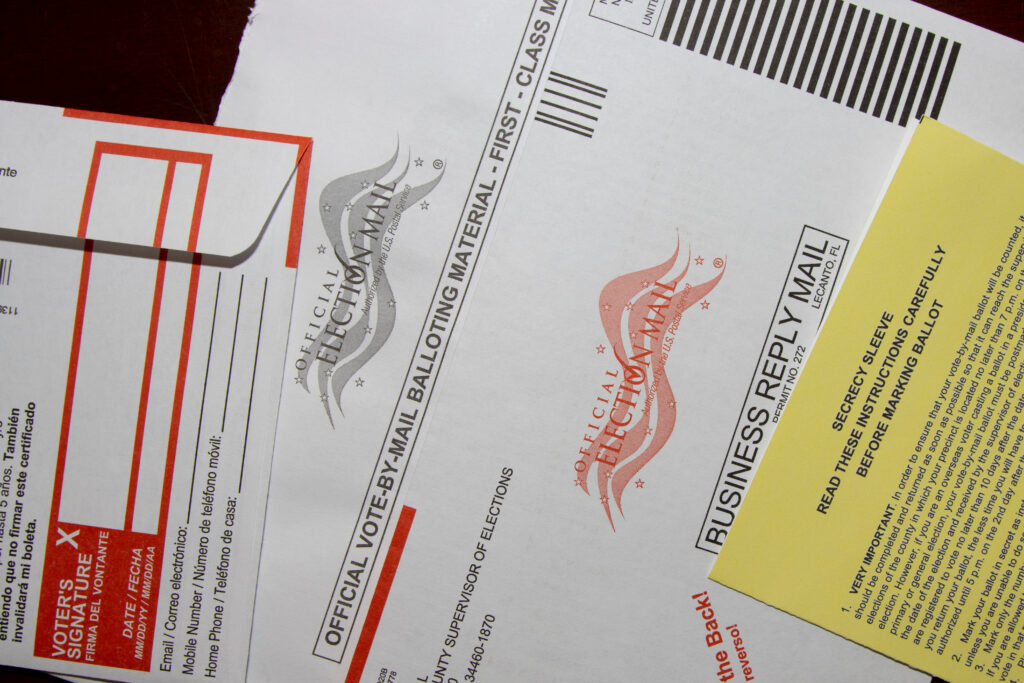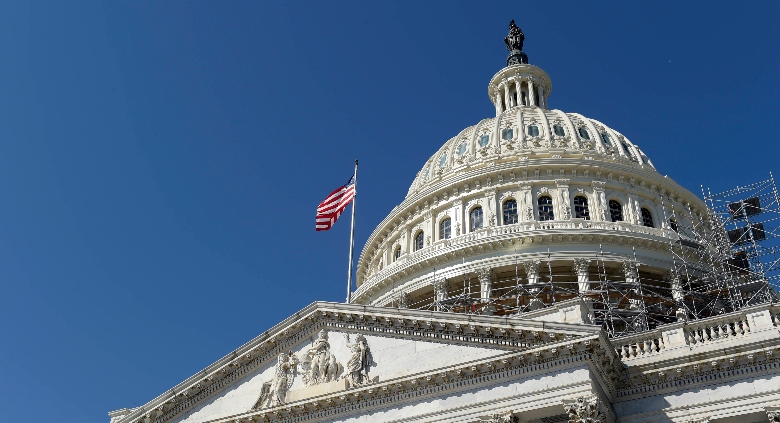A Pennsylvania judge has ruled that Butler County voters and election officials cannot cure or count mail-in ballots that are returned without the required secrecy envelope, often referred to as “naked ballots.”
The ruling, which is expected to be appealed, upholds a prior decision from the Butler County Board of Elections refusing to allow two voters to cure their “naked” mail-in ballots cast in the state’s 2024 primary election.
In what is a victory for those fighting for election integrity, Judge S. Michael Yeager of the Butler County Court of Common Pleas dismissed a petition seeking to challenge the Butler County Board of Elections’ rejection of mail-in ballots that lacked the required secrecy envelopes—often referred to as ‘naked’ ballots.
“It is the voter’s burden to ensure they have completed the steps necessary for their mail-in ballot to be included in the tabulation,” last week’s order reads. The judge added that it is the task of the Pennsylvania Legislature, not the court, to implement a new set of curing procedures to remedy defective mail-in ballots.
The case arose when two Butler County residents, Faith A. Genser and Frank P. Matis, both failed to include the mandatory secrecy envelopes when submitting their mail-in ballots for the April 23, 2024, primary election.
Despite being informed of their ballots’ rejection due to this omission, both voters proceeded to cast provisional ballots on Election Day, hoping to have their votes counted.
Trending: DNC Volunteer Refuses To Vote For Kamala Following Radical DNC Convention
However, the Butler County Board of Elections, adhering to Pennsylvania’s strict election guidelines, rejected these provisional ballots, leading to the court case filed by ACLU Pennsylvania.
The court found that the Butler County Board of Elections acted within its legal rights when it rejected provisional ballots submitted without the necessary secrecy envelopes.
According to the ruling, these “naked” ballots do not meet the statutory requirements set forth in Pennsylvania’s Election Code, which mandates that all mail-in ballots must be completed, placed in a secrecy envelope, and then enclosed in a Declaration Envelope before submission.
The judge emphasized that allowing such ballots to be counted would undermine the very foundation of secure and fair elections. By failing to comply with these regulations, voters risk disenfranchising themselves and compromising the integrity of the electoral process.
The court is not unsympathetic to the Petitioners. Unlike many other qualified electors, Petitioners endeavored to exercise their right to vote so as to participate as fully as possible in their governance.
The court understands their frustration, and additionally, that of persons who deposit their ballot into the mail only to return home to find the secrecy envelope on a table, yet, despite knowing with certainty their secrecy envelope was not included in their return, may do nothing to have their vote counted in the election.
However, as stated by the Court in Boockvar, this is a task for the legislature, not the courts, given the attendant issues that must be addressed. The court would urge the legislature to consider the situation of the Petitioners, to develop and implement a procedure for those who return defective ballots to correct same to ensure as full participation as possible in the voting franchise.
However, the actions of the Board in adopting a narrow cure policy that applies in such a way as to uphold voting deadlines and ensure secrecy in voting is maintained, but that allows electors the greatest possible chance of having their vote counted, does not violate either the Election Code or the Free and Equal clause of the Pennsylvania Constitution.
The Republican National Committee and Pennsylvania GOP sought involvement in the lawsuit to prevent the board of elections from counting the voters’ provisional ballots. “[T]here is no right under Pennsylvania law to cure mail-in ballots which lack a secrecy envelope,” the Republicans argued in a court filing.
Meanwhile, the voters maintained that since the county allows voters to cure mail-in ballots with other errors, such as a date or signature deficiency, it should similarly permit voters to fix naked ballots in order to prevent “unnecessary and arbitrary” disenfranchisement. The Pennsylvania Democratic Party intervened in the litigation in support of the voters’ arguments.
But the judge concluded in Friday’s opinion that the board, in refusing to count the plaintiffs’ ballots, did not violate state law nor the state constitution.
Mimi McKenzie, legal director of the Public Interest Law Center, called the decision “disappointing,” noting in a statement that the “provisional ballot process has existed for more than two decades for scenarios just like this, and the county has an obligation to utilize it.”

